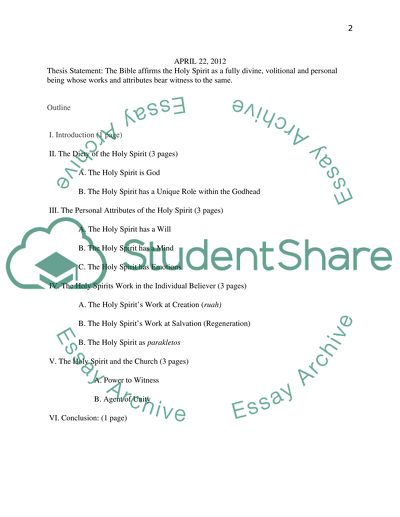Cite this document
(“The Personality of the Holy Spirit Research Paper”, n.d.)
Retrieved from https://studentshare.org/religion-and-theology/1451309-the-personality-of-the-holy-spirit
Retrieved from https://studentshare.org/religion-and-theology/1451309-the-personality-of-the-holy-spirit
(The Personality of the Holy Spirit Research Paper)
https://studentshare.org/religion-and-theology/1451309-the-personality-of-the-holy-spirit.
https://studentshare.org/religion-and-theology/1451309-the-personality-of-the-holy-spirit.
“The Personality of the Holy Spirit Research Paper”, n.d. https://studentshare.org/religion-and-theology/1451309-the-personality-of-the-holy-spirit.


